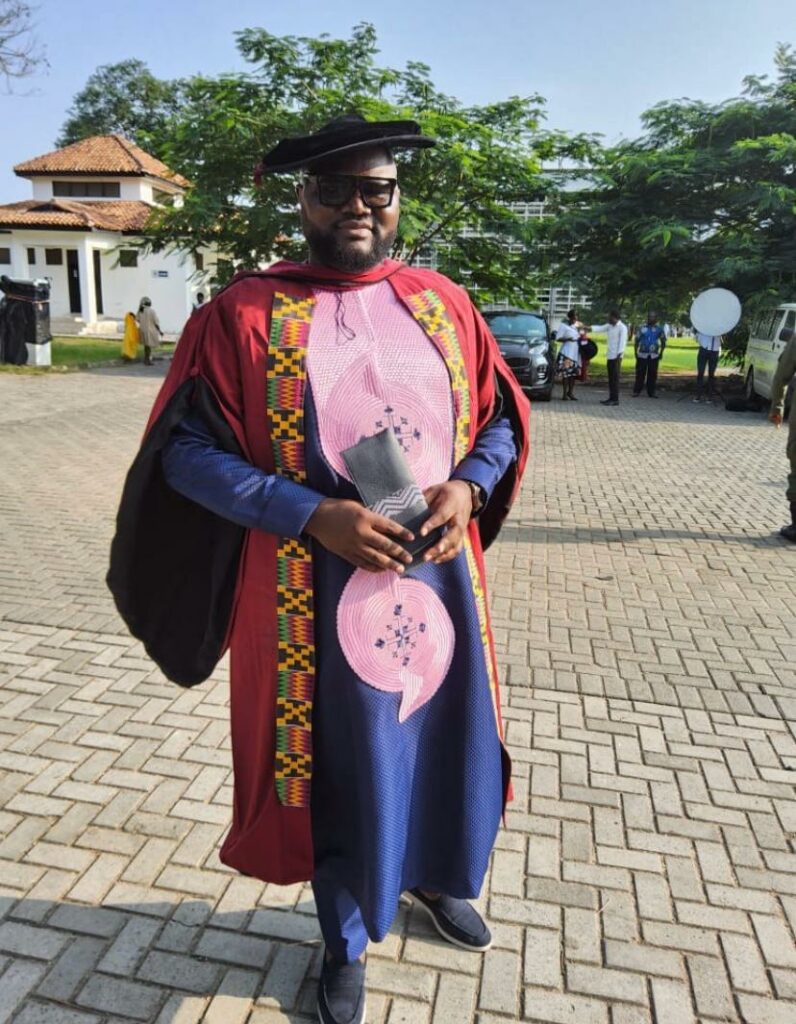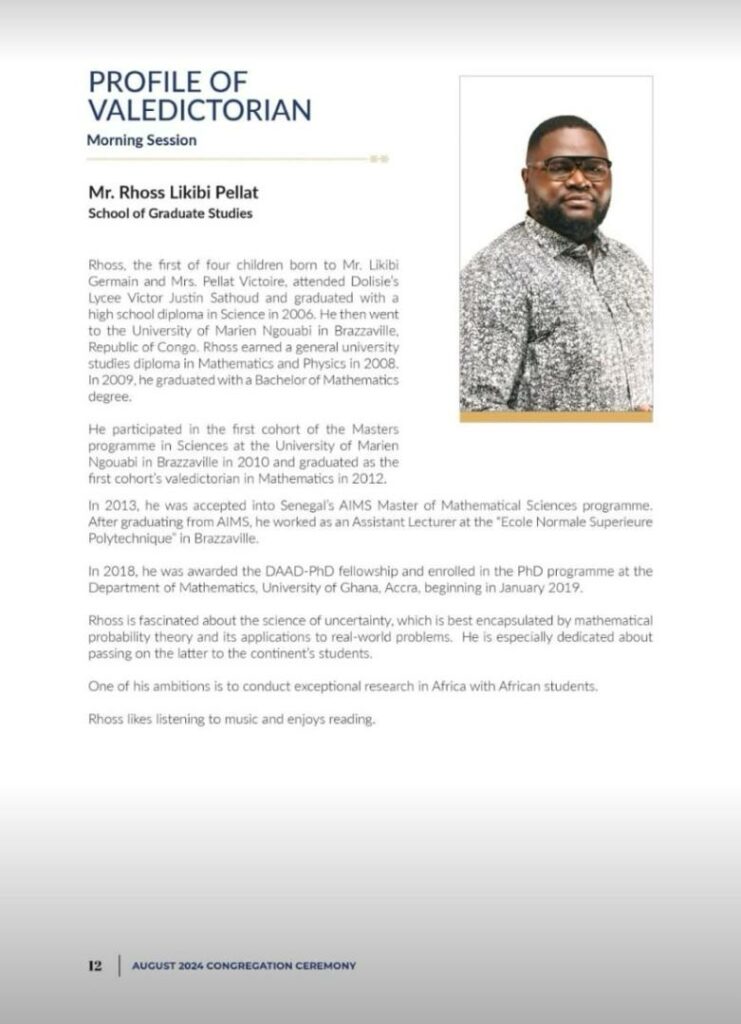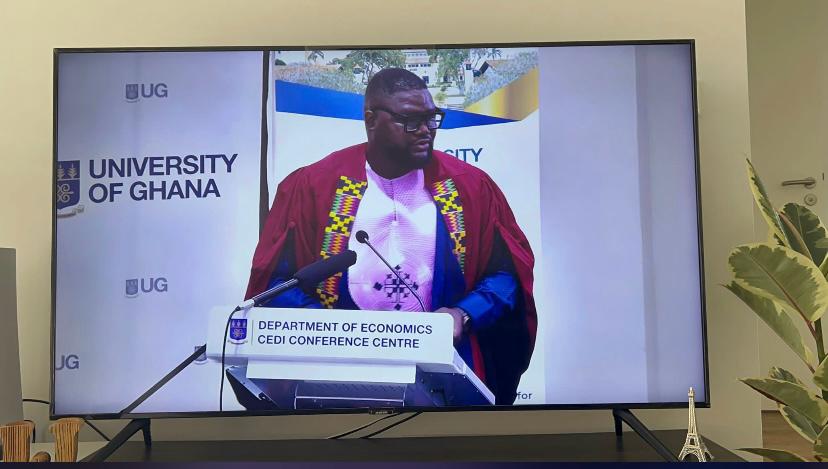At the University of Ghana’s August 2024 Congregation Ceremony, Dr. Rhoss Likibi Pellat, a distinguished scholar from the AIMS Ghana Research Centre affiliated to the University of Ghana School of Graduate Studies, was celebrated as the valedictorian.
Rhoss, the eldest of four children, hails from the Republic of Congo, where he embarked on a remarkable academic journey that has now culminated in this prestigious recognition. He began his educational career at Dolisie’s Lycee Victor Justin Sathoud, where he earned his high school diploma in Science in 2006. He continued his studies at the University of Marien Ngouabi in Brazzaville, obtaining a general university studies diploma in Mathematics and Physics in 2008, followed by a Bachelor of Mathematics degree in 2009. His passion for mathematics was evident early on, as he became the valedictorian of the first cohort of the Masters programme in Mathematics at the University of Marien Ngouabi in 2012.
In 2013, Rhoss was accepted into the renowned AIMS Master of Mathematical Sciences program in Senegal. His post-AIMS career saw him serve as an Assistant Lecturer at the Ecole Normale Superieure Polytechnique in Brazzaville, where he shared his passion for mathematics with the next generation of African students.


Driven by a deep fascination with the science of uncertainty, Rhoss’ research focuses on mathematical probability theory and its real-world applications. His dedication to nurturing African students led him to the University of Ghana, where, in 2018, he was awarded the prestigious DAAD-PhD fellowship. He began his PhD studies in January 2019 under the supervision of Prof. Olivier Menoukeu Pamen, German Research Chair in Mathematics and its Applications. In December 2022, Rhoss completed his PhD and successfully defended his thesis in December 2023.
Currently, Rhoss is an AvH Research Associate and Postdoctoral Fellow at AIMS Ghana, continuing his research on forward-backward stochastic differential equations (FBSDEs) and their applications in financial mathematics and social sciences. He is working on restoring the well-posedness of some ODEs after perturbation by continuous and nowhere differentiable deterministic functions. His work in numerical simulations of FBSDEs with singular coefficients is breaking new ground in the field.

